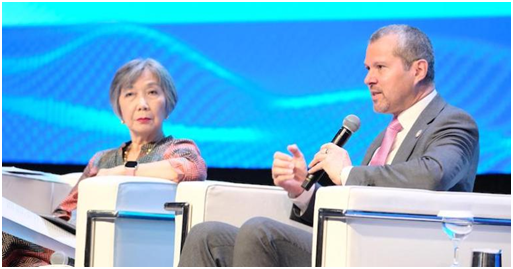
To the laughter-response when IMO secretary general
Arsenio Dominguez said that IMO is not slow in regulating decarbonisation IMO
Sec-Gen said repeating himself “Let me say that loud and clear – the IMO
is not slow. It’s 176 member states we all call for level playing fields and
no-one being left behind.”
To achieve this at IMO meetings he explained that
everyone agrees on the objectives and the goals are set. Justifying IMO’s move,
he continued: “But there are also
challenges and concerns and not everyone is on the same level playing field, so
we need to address those concerns and we need to see how we can support them.” There
is also a procedural aspect of international law and the IMO has to allow the
countries and the industry to prepare, and legislation needs to be passed by
individual member parliaments.
“IMO has to
prepare additional training and technical cooperation activities
for states. So, we are not slow,” he said.
As an example, he cited that the Paris Agreement
was agreed in 2015 and in “2018 the IMO became the first UN organisation to set
up specific goals through mandatory regulations”.“That was highlighted as great
achievement – a few years later we were told that was not enough,” Dominguez
told the audience at the lecture.
An agreement was made in 2018 to revise the
strategy five years later based on progress made on initial measures, and
technological developments and R&D.
“And now, again, we are the first transport sector
that is going to introduce mandatory requirements to meet the goal to
decarbonise the shipping sector by around 2050. If that is being slow let us start comparing ourselves with others,”
the Sec-Gen stated.